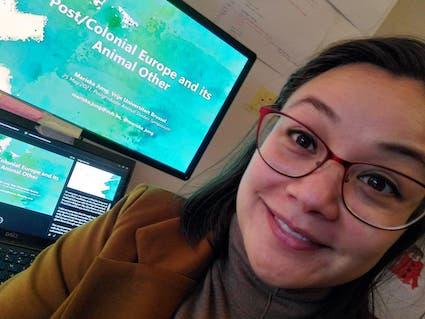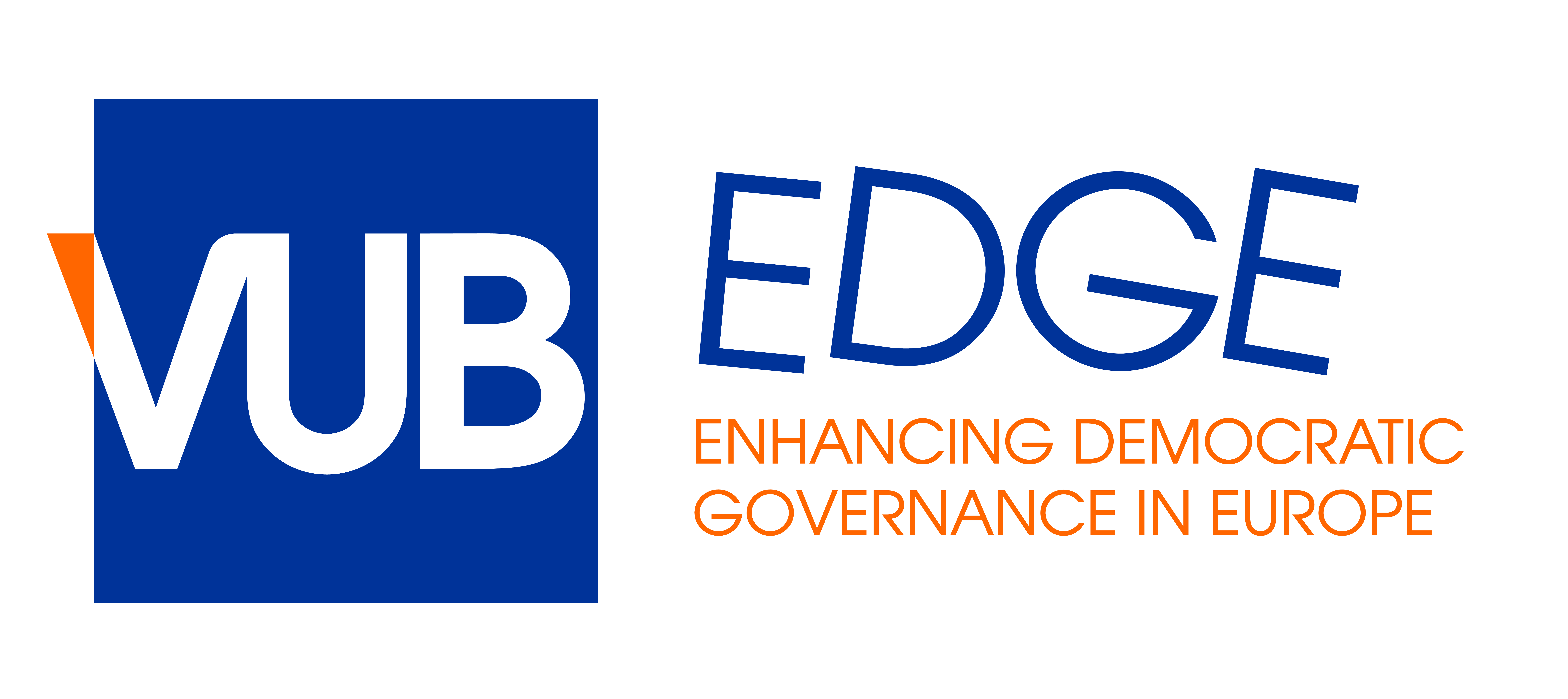
The pandemic has cost us a lot, but it has also given us experiences we would otherwise not have. It has changed the format of academic conferences for the better: moving from on-site to online. With the hope of keeping what worked well during the pandemic, I reflect on my recent conference experiences.
by Mariska Jung
Once recovered from the shock of the pandemic and getting adjusted to online teaching, academic life soon picked up its unforgiving pace. Conference presentations and being well-connected are, if not gold, definitely silver. Thus I have taken to online academic life devotedly. For example, last Pentecoast weekend I attended three academic events: the three-day 43th Implicit Religion Conference, the two-day Postgraduate Animal Studies Symposium, and a one-evening APSA Religion & Politics Early Career workshop. In these online-everything times, there is a real risk of overcommitting.
Ideally the rush and inaccessibility of academia are turned down a notch or two. While the pandemic did not change this, quite on the contrary, it has changed the format of academic conferences for the better: moving from on-site to online. With the hope of keeping what worked well during the pandemic, let me reflect on my Pentecoast conference experiences.
Diversity
One big and obvious reason is that online conferences cost a lot less. There is no need to travel, which saves time and positively impacts our ecological footprint. This also results in less time spend away from family, improving the work-life balance. Further, it costs a lot less money. One does not need to look for hundreds of euros to pay for travel, accommodation, conference fees (which can be appallingly steep!) and (child)care arrangements. Thus, online conferences take away many of the structural impediments that otherwise reproduce inequality in the academy. In times of online conferences, the playing field is (more) leveled between the privileged and the disadvantaged, e.g. those from a working class background, those with a precarious contract, those with limited or no funding for their project, those who take up the majority of the (gendered) workload at home, those who are single parent, those who support an ill family member, and last but not least, those who do not reside in the Global North.
Indeed, my experience at the Postgraduate Animal Studies Symposium was one of much delight, precisely because there was a relative diversity amongst the speakers in terms of their ethnic, racial or religious background and the locations they were residing in. The academic environment re animal studies in the Global North can be dazzlingly white, which sadly reproduces the prejudice that animal causes are a “white people’s thing”. This invisiblizes the brilliant work done by numerous academics and activists of color in- and outside the academy, both in the Global North and South. The fact that the Symposium went online, as the organizers Rebecca Jones, Nicole Cumming and Ali Ryland tell me, has tremendously impacted the diversity amongst the speakers and participants. Traditionally held in Glasgow in Scotland, such diversity would otherwise not be achieved because of the steep travel and financial hurdles.
Accessibility for disabled scholars
Modern academic work is by and large a desk- and screen job. However, the move to online-everything has also impacted the nature of the academic job; now casual chats, departmental meetings, student supervision and teaching have all been mediated by the screen. Consequently, our bottom, lower back, and eyes bear the brunt. This has made able-bodied academics more conscious of the necessity of multiple and extended breaks, clearing one’s head, heading outside to get some fresh air, and to reconnect with their bodies via bodily movement.
As academic conferences normally have a bizarre program (running from 8AM till 8PM with breaks as short as 10 minutes is not an exception), the online conferences I attended ran at a slower pace. Most of them were scheduled between office hours, with fewer panels allowing for more in-depth engagement with a topic and including more and longer breaks. This is beneficial for all, but especially for disabled academics who need this kind of infrastructural support in general.
Making academia accessible for disabled folk includes changing the way we do academia. I do not proclaim that online conferences are a direct road towards disability inclusion, as there are many more roadblocks ahead (e.g. how often are talks translated to sign language or braille programs provided?), but it is one of the options available and is easy and cheap to implement.
Supporting early career researchers
Both the Implicit Religion Conference as well as the Postgraduate Animal Studies Symposium created space in their program to support students and early career researchers (ERC’s). These specially crafted timeslots are called ‘scratch sessions’ or ‘5-minute thesis sessions’ and are honestly amazing ways for novice scholars to hone the skills necessary for an academic career, such as public speaking, presenting academic work, and receiving feedback from senior scholars. Having these sessions amongst the program of a conference, lowers the threshold significantly for ERC’s to join these events. Participation allows ERC’s to build academic networks, including connecting to those well-established scholars who present their jaw-dropping research with much pizzazz.
Organizing said sessions online, lowers the threshold of students and early career researchers even more who, for a variety of reasons (limited/lack of funding, imposter syndrome, lack of experience), would otherwise be less inclined to apply.
Blended conferences: the way forward?
Whereas organizing their conference in a blended form is part of the Implicit Religion annual conference tradition, it is the first time for the Postgraduate Animal Studies Symposium to go online. Positively surprised by the many advantages of online gatherings, they now consider offering a blended form of the Symposium next year. Should academia at large follow them?
There are couple of disadvantages I can think of. It may result in creating a distinction, perhaps even a sense of hierarchy, between those who are able to join the conference in person (often due to privilege) and those who join online. For example, those who are at the conference in person may not fancy to listen to an online panel, and instead spend their time networking informally over a cup of coffee. Or, when the in-person and online attendees do come together in a Zoom conference room, the shared sense of community amongst some is felt (those who’ve just went for a coffee together), which makes the inequality between the privileged and the disadvantaged even more palpable. However, do these risks warrant the acceptance of the inequalities and structural impediments that the current format of on-site only academic conferences (re)produce? And, can we not think of ways that would mediate those risks as much as possible (for example having panels with speakers joining online and on-site)?
When putting in the necessary efforts, blended academic events can be one of the instruments in our toolbox to realize more inclusive academic practices. It is not the pinnacle, but one tool rarely is. Instead multiple and multidirectional efforts combined bring about the change we need. The pandemic has cost us a lot, affecting some more than others, but it has also given us experiences we would otherwise not have. Online academic conferences are one such experience, and I wholeheartedly embrace the diversity and accessibility it enables.
- Mariska Jung is a PhD researcher of the EDGE Programme and the Research Centre Gender, Diversity and Intersectionality (RHEA). She is affiliated with the VUB Political Science Department.

Add new comment